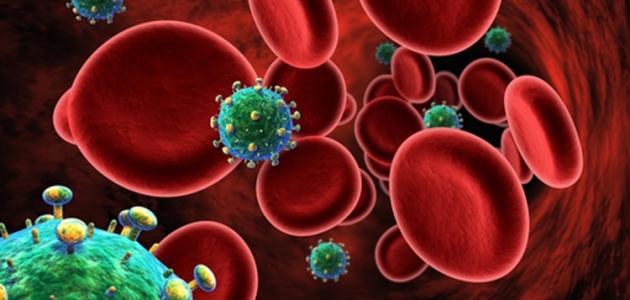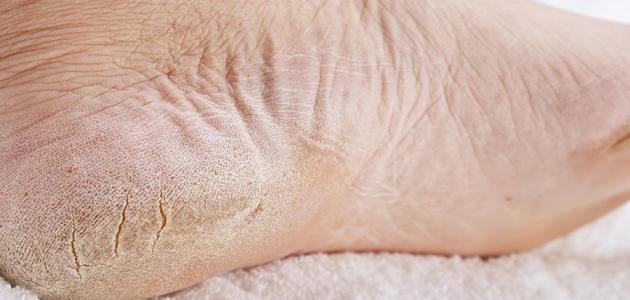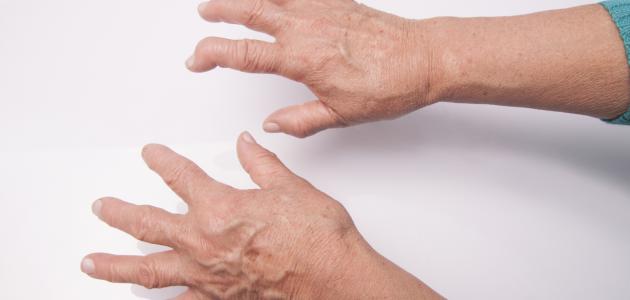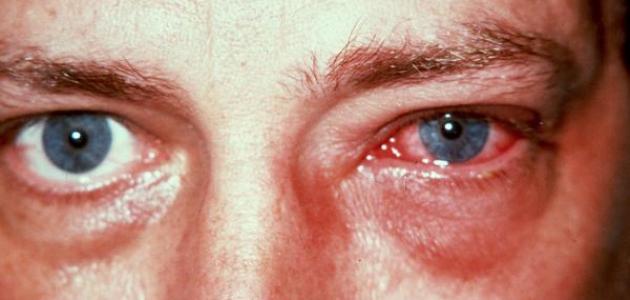Contents
conjunctivitis
Conjunctivitis can be defined as an infection, or inflammation that affects the conjunctiva of the eye. It is the transparent membrane that covers the inner part of the eyelid , the white part of the eyeball, and the conjunctivitis is sometimes called the pink eye. [1] Given that the eye with the inflammation appears pink or red, which is caused by inflammation of the small blood vessels located in the conjunctiva, it is possible that conjunctivitis may lead to irritation of the eye, but it rarely affects the vision of the patient, and it is worth noting That some cases of conjunctivitis are contagious, and here lies the importance of early diagnosis of the problem, which helps to treat it and limit its spread. [2]
Important advice in conjunctivitis
Symptoms of conjunctivitis disappear from throwing themselves without the need to see a doctor after a week, ten days, or more of infection, and here it is worth noting that there are a number of easy steps, and important tips that can be followed to alleviate the symptoms of conjunctivitis as much as possible. Some of these tips can be summarized, explained as follows: [3]
- Resorting to the use of eye drops that can be dispensed without the need for a prescription, known as lubricated drops, or artificial tears, as they help relieve itchy eyes .
- Using cold or warm compresses to relieve the symptoms of conjunctivitis, as it is recommended to place them for a few minutes on the affected eye, and repeat this several times during the day, as the compress can be prepared using a piece of cloth dipped in cold water, to press the eye very gently while it is closed, and in When using warm compresses, you must make sure that their temperature is moderate, as the high temperature may worsen the eye problem.
- Make sure to wash the pillow cover and clothes in case you suffer from allergic conjunctivitis , showering and washing before going to sleep may help in this case.
- Avoid wearing contact lenses if you have conjunctivitis.
- Avoid rubbing or touching the eyes as much as possible, as this may worsen symptoms and increase the amount of time it takes to recover. [4]
- Use a warm, damp cloth to remove the pus around the eyes and eyelashes. [4]
- Use of pain relievers, such as: ibuprofen To reduce inflammation and pain. [4]
- Preventing the spread of conjunctivitis infection to others. This can be done by following several methods and tips, including the following: [5]
- Avoid sharing pillows and towels with others.
- Make sure to wash your hands with soap and warm water regularly.
- Avoid rubbing the eyes.
- Make sure to wash fabrics and pillows in hot water and detergent.
- Avoid wearing contact lenses until the eye condition has improved .
- Get rid of infected makeup. [4]
- Avoid direct contact with others, whether that is at school, at work, or staying at home until symptoms have cleared up . [4]
Medicines to treat conjunctivitis
The appropriate drug treatment is chosen depending on the type of conjunctivitis that the person suffers. Some of the drug options offered for treating conjunctivitis can be mentioned as follows: [6]
- Medicines for treating viral conjunctivitis: Decongestants and topical antihistamines, which can be dispensed without the need for a prescription, can help relieve symptoms of viral conjunctivitis.
- Drugs for treating bacterial conjunctivitis: Ointments and eye drops that contain certain types of antibiotics, such as: gatifloxacin , sulfacetamide , erythromycin , erythromycin can be used. And ofloxacin .
- Allergic conjunctivitis: Various types of drugs can be used, including the following:
- Topical eye drops that contain antihistamines, such as: epinastine and ketotifen .
- Mast cell stabilizers , such as: nedocromil and ludoxamide .
- Antihistamines that can be dispensed without the need for a prescription, such as: Diphenhydramine and Loratadine . [7]
Symptoms of conjunctivitis
The immune system is stimulated when the eye is exposed to one of the causes of inflammation , which in turn leads to expansion of blood vessels, allowing white blood cells to reach the site of infection, and depending on the type of conjunctivitis that the patient suffers, there is a set of symptoms that may be associated with conjunctivitis, Some of them can be mentioned in the following: [1] [2]
- Feeling of sand in one or both eyes.
- Redness of one or both eyes.
- Watery eyes.
- Feeling itchy in one or both eyes.
- Discharge from one or both eyes, which leads to the formation of scales during the night that hinders the opening of the eye in the morning.
- Swollen eyelids.
- Increased sensitivity of the eye to light.
Causes of conjunctivitis
Some of the most common causes of conjunctivitis can be mentioned as follows: [7]
- Exposure to allergens, such as pollen, that stimulates the body to produce histamine, and this results in the occurrence of allergic conjunctivitis.
- Eye infection with the bacteria that cause strep throat , and Staph infections.
- Eye infection with a viral infection, and the viruses that cause the cold are often the reason behind the occurrence of viral conjunctivitis .
- Eye exposure to chemicals, such as: chlorine found in swimming pools.
See a doctor for conjunctivitis
It is advisable to see a doctor in certain cases of conjunctivitis, some of which can be mentioned as follows: [4]
- Suffering from pain in the eyes .
- Have a fever.
- Suffering from chills .
- Low vision.
- Feeling of pain in the body.
- Yellow or green secretions from the eye.
- Conjunctivitis with a history of eye diseases, or a weak immune system in the body.
- Symptoms persist for more than two weeks. [5]
- Infection of the infant with red eyes , and you should see a doctor as soon as possible if the infant is not more than 28 days old. [5]
References
- ^ A b of Troy Bedinghaus, "An Overview The Of Conjunctivitis" , Www.verywellhealth.com , Retrieved 12-5-2019. Edited.
- ^ A b "Pink Eye (Conjunctivitis)" , Www.mayoclinic.org , Retrieved 12-5-2019. Edited.
- ↑ "How to Take Care of Pinkeye at Home" , www.webmd.com , Retrieved 12-5-2019. Edited.
- ^ A b t w c h of Jamie Eske, "How To Treat To Pinkeye At <br> home" , www.medicalnewstoday.com The , Retrieved 12-5-2019. Edited.
- ^ A b t "Conjunctivitis" , Www.nhs.uk , Retrieved 12-5-2019. Edited.
- ↑ "PINKEYE (CONJUNCTIVITIS) MEDICATIONS" , www.rxlist.com , Retrieved 12-5-2019. Edited.
- ^ A b Erica Roth, "What Causes Conjunctivitis?" , Www.healthline.com , Retrieved 12-5-2019. Edited.
















